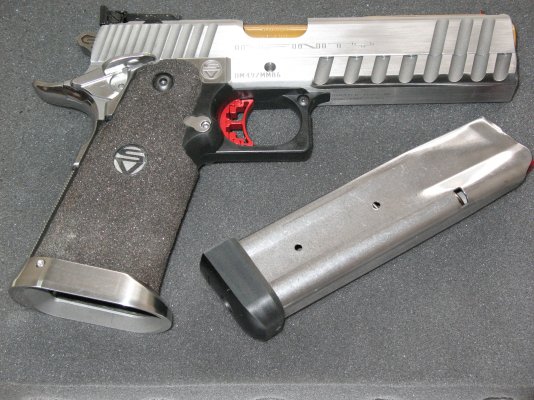(get some ear protection)
+1 on that, and don't skimp on it. The range will probably (and should) require that and eye protection as well.
After decades of qualifying at least annually for work I have what the audiologist called a "notch" of hearing loss consistent with being exposed to gunfire. She didn't say that was the cause but did say it was characteristic of it.
I did always wear hearing protection but I guess it wasn't enough.
Last edited:


 ) Some people are intimidated by semi auto's and will opt for a revolver. IMO, if you are going to be an infrequent shooter, then a revolver may be a better choice. Also, don't buy a cheap (poor quality) gun for any reason. Guns are dangerous, poor quality guns are worse.
) Some people are intimidated by semi auto's and will opt for a revolver. IMO, if you are going to be an infrequent shooter, then a revolver may be a better choice. Also, don't buy a cheap (poor quality) gun for any reason. Guns are dangerous, poor quality guns are worse.